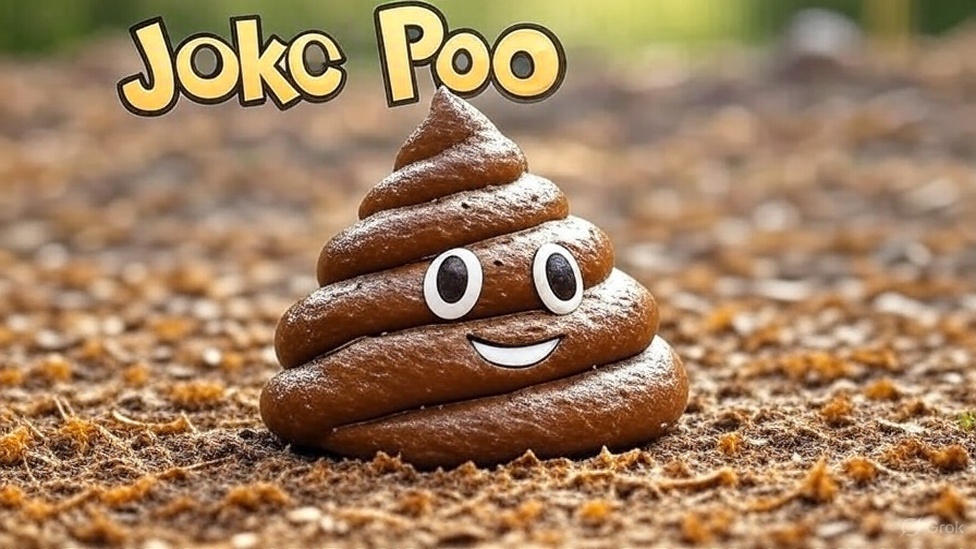As the Pennsylvania State Trooper walked up, flipping his ticket book, she joked:
“I bet you’re gonna try to sell me a ticket to the Trooper’s Ball.”
He replied:
“Ma’am… Pennsylvania State Troopers don’t have balls.”
Then he closed his book, tipped his hat, and drove off.
Joke Poo: The Librarian’s Loan
A teenager got called to the librarian’s desk for an overdue book. As the stern, bespectacled librarian approached, tapping the offending novel against her palm, he quipped:
“I bet you’re gonna try to fine me an arm and a leg for this being late.”
She replied:
“Young man… librarians don’t require limbs as payment.”
Then she scanned the book, stamped it with a return date two weeks in the future, and handed it back with a wink.
Okay, let’s dissect this joke and see what we can wrangle out of it.
Key Elements:
- Setup: Woman speeding, pulled over by a Pennsylvania State Trooper. The expectation is a typical traffic stop.
- Misdirection: The woman’s humorous attempt to deflect (Trooper’s Ball ticket). This sets up an anticipation of witty banter or a lighthearted exchange.
- Punchline: The trooper’s deadpan, unexpected response (“Pennsylvania State Troopers don’t have balls.”) creates the humor through subversion. It’s funny because it’s unexpected and suggests a (likely untrue) lack of bravery/assertiveness among the troopers.
- Resolution: The trooper reinforces the joke by simply leaving, leaving the woman (and the audience) hanging.
Analysis:
The humor hinges on several things:
- The Double Entendre: The word “balls” has both the literal meaning (testicles) and the figurative meaning (courage/nerve). The joke exploits this ambiguity.
- Stereotype Subversion: We might expect a cop to be gruff or imposing. The trooper’s response and subsequent departure defy that expectation.
- Regional Identity: It specifically mentions “Pennsylvania State Troopers,” which might tap into any pre-existing stereotypes (real or imagined) about Pennsylvanians or law enforcement in that state.
Humor Enrichment: Building on the Joke
Let’s try a few approaches:
1. Expanding on the “Balls” Theme: A ‘Did You Know?’
Original Joke Playoff: Did You Know?
“Speaking of anatomical accuracy and Pennsylvania State Troopers… Did you know the Pennsylvania State Police actually do have a canine unit? And ironically, many police dogs are German Shepherds. Which means, statistically speaking, Pennsylvania State Troopers are more likely to be around actual balls than the average citizen.”
(Humor Source: The humor here comes from the contrast between the insinuation in the joke (lack of courage) and the factual existence of police dogs, often associated with bravery and obedience, creating absurd juxtaposition.)
2. Alternative Joke Structure (using similar elements):
New Joke:
A Pennsylvania State Trooper pulled over a speeder. As he approached the car, the driver nervously rolled down the window.
“Sir,” the trooper said, “Do you know why I stopped you?”
The driver stammered, “I… I think I was going a little fast, Officer?”
The trooper looked at him deadpan. “No, sir. I stopped you because I’m required to make my quota. I need to issue at least three tickets tonight and my partner just got his quota, so I decided to pull you over. And before you ask… my quota isn’t the Troopers Ball tickets. What quota would the Troopers even need, when the Ball always end up being full of Troopers dancing with each other while the wives end up talking in the bathroom about what they’re gonna do next Thanksgiving?”
(Humor Source: By playing on the stereotype of a quota, combined with the fact that the cop admits it upfront and adding a touch of Troopers’ Ball, we highlight the absurdity of certain aspects of law enforcement and social norms.)
3. Witty Observation:
“That Pennsylvania State Trooper joke highlights an important truth: sometimes, the most effective way to win an argument is to simply… walk away. Especially if your argument hinges on implying the other party lacks, shall we say, certain essential equipment.“
(Humor Source: The humor stems from the dry, understated delivery of a self-evident point, framed by the slightly crude context of the original joke.)
Hopefully, these enrichments provide some amusing variations on the original joke. The key is to leverage the core elements – the double entendre, the subverted expectations, and the regional specificity – to create new layers of humor.


